Interview: Actor Michael Emerson of 'Lost' and 'Person of Interest'
 |
 |
|||||||
INTERVIEW WITH ACTOR MICHAEL EMERSONBy Jimmy Aquino, Pop Culture Contributing Editor Back in April, I sat down with my friend of 20+ years, actor Michael Emerson, and recorded a lengthy interview for my podcast Comic News Insider (you can hear the full interview in Episode 396, but do forgive my babbling). Following his Emmy Award-winning performance as Benjamin Linus in Lost, he has gone on to star as Harold Finch in the hit CBS action drama, Person of Interest. In this excerpt from that interview, we go all the way back to his childhood to dig up secrets such as his marching band skills of yore. He talks of how his love of theater began, his journey (with many stops and re-starts) to the path of becoming a working actor, his detour into magazine illustration, rediscovering the acting bug in Florida, meeting and courting his talented and lovely wife Carrie Preston at Alabama Shakespeare Festival, finding success in New York City theatre and eventually TV and film. Great tales of early survival in NYC in the late 70’s, the importance of Shakespeare to the English language, transitioning between Ibsen and Chekhov, escaping the island, faking an ecstasy trip, and never wanting to fight again. Grab a good glass of bourbon and sip away as you read (and hear in the audio excerpts below) all about the fantastic Michael Emerson. |
||||||||
|
|
||||||||
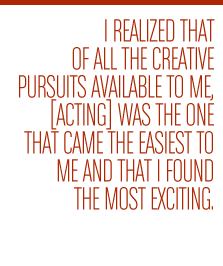 |
GROWING UP / TRAININGAQUINO: Thank you, Mr. Michael Emerson, sir. It’s good to see you. This interview is not just going to focus on the nerdy things like sci-fi and Lost, or X-Files, it’s going to mention everything in your career. Shakespeare and going back to the day. Michael and I have known each other for about 20 years. He’s a couple years older than me, but we lived in the same town in Jacksonville, FL for a while… EMERSON: Yeah, and we did some theatre together. AQUINO: But before that, you grew up where? I believe it was Iowa? EMERSON: Toledo, Iowa. A small farming community in Tama County, in the middle of the state. Sort of midway between Des Moines and Cedar Rapids, which is the city of my birth. AQUINO: When did you first show signs of being interested in acting? EMERSON: I remember doing the Fifth-Grade pageant. It was… strangely—since I ended up working in Hawaii for so many years—called, Hawaii, Islands of Enchantment. I played the Polynesian witch doctor. I had a grass skirt and a papier-mâché head that I’d made, and I did a funny dance between bamboo poles. I guess I didn’t get that serious about it until I was in high school. And I saw that it was a thing that could set me apart. It was a thing I had a special aptitude for. AQUINO: What made you realize? EMERSON: I realized that of all the creative pursuits available to me, it was the one that came easiest to me and that I found most exciting. I was a loyal member of the marching band, but I couldn’t play the instrument worth a darn… AQUINO: What are some of the plays you did? Did you embrace the classics as a youth? EMERSON: We did kids’ plays. In junior high, I remember every year we would have to do something from the “Wildcat Willie” series. My friend Donald Schrack always got to play Wildcat Willie, so I always had to play the goofy guy, or the villain…. Already I was established as the character player, even back then. In high school, we did interesting American plays. We did Thurber Carnival, and we did You Can’t Take it With You, and we did musicals. I played Horace Vandergelder in Hello Dolly!, for God’s sake… In the musical of Lil’ Abner, I played Evil-Eye Fleegel, who was a guy who could destroy people by giving them a certain queer look. [laughs] I was always involved in something that was a little grotesque, or little bit eccentric. And I was the kid that always played…even then, even when I was 14, I played old men. And I kind of still do. Soon, I will be old enough to actually play them appropriately. AQUINO: When did you actually pursue acting as a career? EMERSON: I majored in theater. I did a lot plays in college, and it was all consuming, you know, when you’re a theatre major in those days. So I didn’t do campus activities, I didn’t go to sporting events. I wasn’t a fraternity member, or anything like that. You spent all your days and nights at the theater, and most of your weekends as well. AQUINO: Yeah, which I think people don’t understand. As a Theatre major, you do everything. You’re not just acting, you’re building sets, you’re writing plays, you’re ushering, you’re working in the theatre. It’s everything. EMERSON: Yeah, you’re on every kind of crew… It was a lot of work, but it immerses you in it so much, and it makes you realize right from the get-go what you’re going to have to sacrifice. |
|||||||
| (Emerson’s “Finch” experiences altered states on Person of Interest) | ||||||||
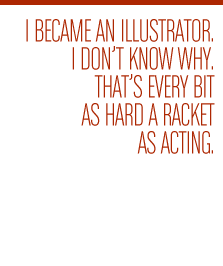 |
NEW YORK CITY: TAKE ONEAQUINO: When did the decision to go to New York for the first time come? EMERSON: I had a crazy girlfriend, and she wanted to move to New York. She had poetic ambitions. We moved and lived fairly miserably in Manhattan. This was in the mean ol’ days in Manhattan. 1976, and it was rough. It was rough finding an apartment. I got a retail job to try to keep body and soul together. But in those days, you could also entertain yourself more cheaply, so there was always money to go out and have a beer or go see some music or something. I never was a regular at the fancy discotheques, you know, Studio 54 or the like, but I went to the Peppermint Lounge, and Max’s Kansas City, and the Mudd Club, and all those old joints from way back when. AQUINO: How long was the first stay in New York? EMERSON: I lived in New York for eight or ten years. AQUINO: And you worked in theatre? Did you do plays? EMERSON: No, no I couldn’t figure out how to do that, and so I just gave up. I gave up my dream. Youngsters: don’t do it. It’s not a good bargain. I became a magazine illustrator, somehow. I don’t know why. That’s every bit as hard a racket as acting. I lived in Brooklyn for many years in a little studio apartment, and I drew my pictures… AQUINO: You simply lost interest [in acting]? EMERSON: I let go of it. Until one day, one night in the early 80’s, I did go to see Sam Shepherd’s play, Buried Child, on Christopher Street. And it just knocked me out. I thought, “This is so great, and wonderful, and strange, and so dreamlike, and otherworldly,” that I thought, “God, I would give anything to be back in a world where that kind of fantasy could be realized.” AQUINO: What type of illustrations were you doing? Did you have a particular style of art? EMERSON: I would come up with concepts and sketches and I would offer them and the art director of whatever periodical it was would choose whichever idea they liked best. I mostly worked in black-and-white pencil. Prismacolor black was my pencil of choice. And I did really fussy, highly detailed, realistic—or surrealistic—drawings. And ya know, it was fun. It was satisfying, but I was a slow study, and it wasn’t a handsome living. |
|||||||
 |
||||||||
| (Self-portrait) | ||||||||
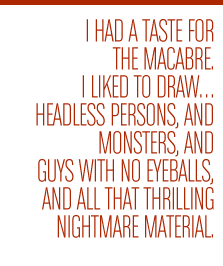 |
AQUINO: As a kid, you drew, obviously. But what inspired you to draw? EMERSON: Some fine art and some book illustration I liked. And like most, I guess when I first really started drawing a lot was in high school. And I had a taste for the macabre. I liked to draw…headless persons, and monsters, and guys with no eyeballs, and all that thrilling nightmare material. And fortunately, my illustration career kind of allowed me to keep on in that vein, only in a more sophisticated way. I had picture books at home. I had a collection of stories from Alfred Hitchcock, and I had the Headless Horseman, and other tales of terror, and Poe stuff. But with various illustrators. And so I’m sure I had seen the etchings of Gustave Doré and some of those. And I’d seen a lot of fairytale drawings. You know, Arthur Rackham, and some of those pre-Raphaelite or turn-of-the-century illustrators. I always liked that stuff. AQUINO: Do you have any interest in doing it again? Even for fun? EMERSON: I’m sometimes nostalgic for it, because it was satisfying, and I had a certain skill. But I was too slow a drawer and frankly, not skilled enough AQUINO: Can we see your work anywhere? EMERSON: I have a bunch of pieces that are on my soon-to-be-launched website. God, it should have been launched a year ago. It’s one of those deals where I’ll work on it furiously for a while, and then I’ll just get too busy. Like Person of Interest has just kicked my butt, so I haven’t been able to take care of things like that. AQUINO: It’s doing monster numbers, by the way… EMERSON: Yeah, it’s a success, but careful of your successes, because they prevent you from doing a lot of other things. Maybe during the hiatus I’ll get that thing launched. It’ll have lots of video clips, and a sampling of the drawings I used to do, and goofy home pictures. |
|||||||
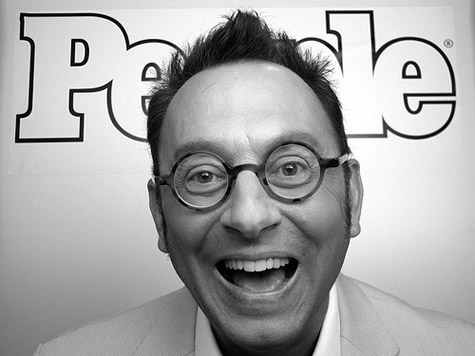 |
||||||||
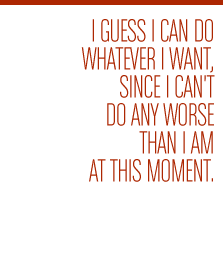 |
FLORIDA AND SHAKESPEAREAQUINO: After the New York experience, was it directly from there you moved down to Jacksonville? EMERSON: I went to Florida with my first wife and we were divorced, and then there I was, high and dry in Northeast Florida. And my bridges were rather burnt—I had left my New York illustrator contacts behind. So I thought, “Well, nowhere to go but up, and I guess I can do whatever I want, since I can’t do any worse than I am at this moment.” So I went and somebody I knew in St. Augustine said, “You should go up and talk to this professor at the University of North Florida. She does Shakespeare plays and they’re auditioning for a production of Othello next week.” So I trotted up there and got the part of Iago, and I’ve been doing classical work ever since. AQUINO: I feel like that’s when I first heard of you. I was in high school at the time. I think it was Hamlet that you did there as well, right? EMERSON: I did. I did Hamlet and Much Ado…, and Othello… I had a head of steam. I had 12 years of deferred dream to catch up on, and I was loaded. I was ready to go. I had taken some acting classes in New York. Near the end, just before I came to Florida, and illustration had taught me a sense of design, and I saw the weaknesses of the scenic design work that was being done. So I started designing and building scenery, and that taught me how to use tools, and I had directed when I had to, and I acted, and I got to wear all the hats. It was sort of my golden age, or my renaissance. It was me coming out as a theatre artist and I’m glad I did it. And maybe I couldn’t have done it—I didn’t have the nerve to do it in New York, or the wherewithal, but somehow I was able to do it in Jacksonville. And so I’m happy that I was there. AQUINO: I think that’s when we started working together at Theatre Jacksonville… EMERSON: I was briefly the tech director, and of all things, of all unlikely titles for me to hold… AQUINO: So you basically designed all the sets for all the shows for the season…and built them. EMERSON: And I freakin’ built them! I had to learn how to use tools and stuff. And it was during those days when I realized that community theatre notion of volunteerism, like, “Hey everybody, let’s get together on Saturday afternoon, and we’ll build scenery and paint it!” AQUINO: You also starred as Valmont [in Christopher Hamption’s Les Liaisons Dangereuses] and directed it. EMERSON: Yeah. And the playing of the lead role was the thing I gave the least attention to. Because I had the huge problem of building these great rolling archways. But it looked good. I did some scenery for plays that I wasn’t in. Those were also nice. I did a kind of “Looney Tunes,” surreal, colorful set for The Constant Couple. And I’m still very proud of that. It was kind of like Laugh In. It had a lot of doors and windowpanes. Nothing at right angles, and everything sort of twisted and tortured. And people could stick their heads out, or dive through them… It was a Jacobean or Restoration play or something. AQUINO: You have such a passion for acting. How important do you think it is a for a young actor, or even just a fellow actor, to have a passion where you expect it not just out of yourself, but out of everyone else? EMERSON: Well, I think it’s important to have a high standard for the work. I think I felt because I had started so late, that I had damn well have a professional standard about the work. I wanted to set the bar high, for myself, and I guess for everyone else. But a part of your challenge—if you have a passion, or a vision—is to find a civilized way to communicate it to other people. And to let them know that it’s not functions of fickleness or favoritism, or purely issues of taste, or any of that. There’s a logic or a kind of science to making plays tick, or to making showbiz tick. And I always felt that it was important to try to communicate that to people. AQUINO: Did you feel a need because so many people looked up to you to sort of mentor? EMERSON: Yeah, I guess I was a mentor to others. I ran that Shakespeare workshop and I taught and sometimes that work was frustrating and after a while, after a few years of being mentor to others, I thought, “Well, when is it my turn? Who’s my mentor then? Where can I go to get someone that can take me to the next level?” And I think that’s when I began to look around for work in bigger theaters in the Southeast, and eventually, to look for a conservatory program, which I found in Alabama. AQUINO: And you ended up going to Alabama Shakespeare Festival to get your MFA and met your now-wife Carrie Preston… EMERSON: At an advanced age, yeah. And I had the great fortune to run into Carrie Preston there doing a production of Hamlet and I thought she was a tip-top kind of a girl, and started following her around. And even followed her all the way to New York City. |
|||||||
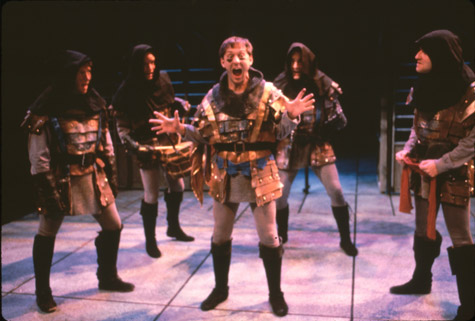 |
||||||||
| (Henry V) | ||||||||
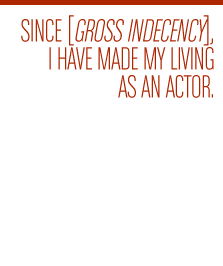 |
NEW YORK CITY: TAKE TWOAQUINO: You have such a way of looking at the language, especially the classic text of Shakespeare. What drew you to, especially Shakespeare, but the classics in general? Was it the language? The Stories? EMERSON: I’m historical minded, so I like the antiquity of things. But I suppose at the end of the day, it’s poetry that gets me. It’s the perfect turn of phrase. Or a colorful way of saying something. People think that Shakespeare’s maybe flowery or long winded or something, and I’m here to tell you, Shakespeare says a complex thing in fewer words than any other man was ever able to. AQUINO: I sent you a link recently… There are some Shakespeare scholars in England that released an audiobook of what the language would have sounded like at that time. And the way they speak sort of changes the inflection and perhaps the meaning of some of the text. What did you think of it? EMERSON: I thought it was great. I mean, it’s sort of beside the point in one sense. Because you could stay up late at night talking about what Shakespeare’s dialect was and how the English language was spoken in Stratford in the 1590’s, and that’s good. But they made an interesting point, which is that Wiltshire, or Warwickshire dialect, which they seem to have figured out how it went, it’s a really clipped and fast-moving way of speaking. And so it helps answer that question of, “Were Shakespeare’s plays ever done in two hours’ time?” the way he says in one of his own lines? “The two hours’ traffic of our stage,” or whatever. And everybody goes, “Oh, that’s crazy, these plays take much longer.” But not if he spoke… apparently, they don’t take quite as long if you rattle on through it the way they would have done in the day. But that presupposes that everyone in your audience gets and understands the dialect. And it’s an interesting dialect. It feels a little bit Welsh, and little bit Scots… AQUINO: There’s a little bit American in there, maybe…? EMERSON: Yeah, a little bit North Country, a little bit Appalachian. It’s all of that. But then, that’s natural. The old, lost dialect of Appalachia, which you can barely hear traces of now in the most remote areas, is a leftover from Jacobean England, from sort of the 17th Century. They came over here, and they brought fiddles, and they said, “I reckon.” AQUINO: How many of Shakespeare’s plays have you done? Are there any that you’d want to adapt to a film as maybe both a director and actor? Maybe something like Branagh or Olivier have done? EMERSON: I have a soft spot in my heart for All’s Well That Ends Well, even though it has a problematic romantic relationship at the center of it. But I like that it’s a medieval play and I like that it involves magic and healing. In a way, it feels like sort of the oldest, or most Old English or Anglo-Saxon of Shakespeare’s plays. I like it for that reason. But the favorite is always Macbeth, because of the high level of poetry and the compression of it. AQUINO: Any other classics beside Shakespeare you’d want to tackle? EMERSON: I’m always up for more Ibsen. Ibsen has grown on me in my old age. I used to think, “Oh, well, it’s Chekhov, and I don’t get Ibsen.” Now I’m beginning to get Ibsen and I’m beginning not to get Chekhov. So that’s an interesting transition I have. But once I realized…in college and in school, everybody always lumps them together. “Oh, these two, these are the late 19th Century-Realists,” or whatever. But they couldn’t be more different. And I don’t think Ibsen is a realist. I think he’s a surrealist, or he’s a symbolist. Those are really… All he’s taken is folktales and put contemporary characters in the roles. So it’s not a troll, or a banshee anymore. It’s Hedda. You know? So there’s a veneer of civilization laid on top of mythological characters. I like that because it allows for some very large playing and some very larger symbolisms. AQUINO: When you got to New York City… Arguably your big break was Moisés Kaufman’s Gross Indecency: The Three Trials of Oscar Wilde. EMERSON: Yeah, it is the break of all breaks. AQUINO: And you played Oscar Wilde, the lead. It was such an amazing portrayal. Were you a Wilde fan? Did you know of Kaufman’s work? Because he was sort of a young playwright, not well known at the time… EMERSON: I had never met Moisés Kaufman before, or seen his work. I was just desperately looking for work, and Carrie had a friend, Marin Hinkle, who had met Moisés. And Carrie said, “We’ve gotta find something for Michael.” And she said, “Well, I know this guy, Moisés, and he’s looking for grown-up men who can do an English accent.” And Carrie said, “Well, Michael can.” So I went to meet the guy, and he worked me into some of the workshops of the production. Never in the lead role, but always playing the various lawyers. It was good, and I thought it was a worthy project. And then when we went to mount it and the lead got fired, I had the gall to go and say, “I’d love to read for the lead.” And somehow magically I got it. And we were off to the races. And I didn’t spend a lot of time thinking about whether I was right for the role. I don’t look physically anything like Oscar Wilde. But that never matters that much anyway. It was more about capturing the spirit of him. And I guess the man and his works spoke to me. I admired him as the outsider, the rather persecuted outsider that he was. And so I felt it fairly strongly, and I guess it showed in the work. AQUINO: You got rave reviews in New York… EMERSON: Yeah, we got a love letter… AQUINO: With that, some doors started opening. EMERSON: Yeah, and then I was a working actor. Since that play opened, I have made my living as an actor. |
|||||||
 |
||||||||
| (Gross Indecency: The Three Trials of Oscar Wilde) | ||||||||
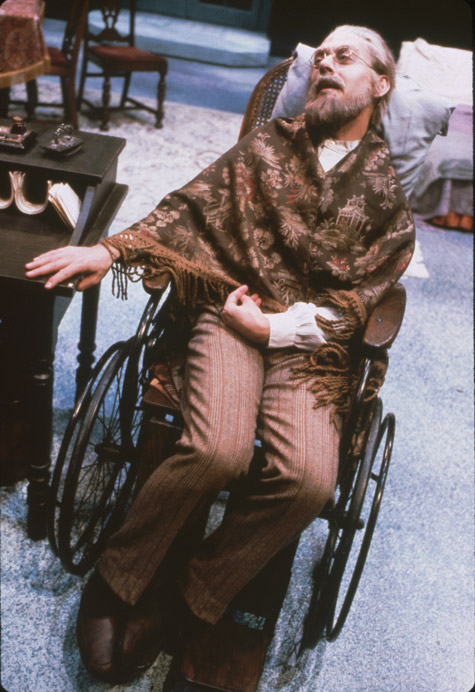 |
 |
|||||||
| (The Seagull) | (Give Me Your Answer, Do) | |||||||
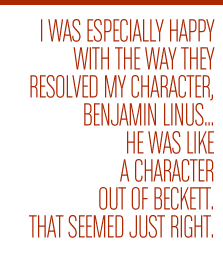 |
TELEVISIONAQUINO: You got on Broadway with Iceman Cometh. And of course you worked with Kate Burton twice, in Hedda Gabler. And the other one was…? EMERSON: Give Me Your Answer, Do. [Affects Irish brogue] The Brian Friel play. It was Irish. AQUINO: Another defining thing that opened doors in the TV world, was William Hinks in The Practice. EMERSON: Yeah, that serial killer. I played a man who appeared to be one of those fellows that wants to be convicted. That wants to be thought that he’s a powerful, vicious killer. But he was just making it up. But then the big twist was that he hadn’t made it up at all. He had been play-acting to cover his real ruthlessness. AQUINO: In 2001, you were the only non-star in the category of… EMERSON: Best Guest Actor in a Drama… AQUINO: And you won! Did you attend The Emmy’s that year? EMERSON: Yeah. AQUINO: What was that like? Did people know who you were or why you were there? EMERSON: No. Nothing in my life had prepared me for it. I mean, people that had watched the show, I think, thought it was worth honoring. But yeah, there were a bunch of names in the category that year. …But three days later, the attack on The World Trade Center happened, and then there’s really nothing to talk about. To speak about anything involving show business at that point, for many weeks and months, just didn’t feel right. AQUINO: And then you did a very memorable episode of X-Files. It had this very Brady Bunch feel to it, which was cool. It was even called “Sunshine Days.” EMERSON: Yeah. He could, by power of telekinesis, project the entire Brady house onto the inside of an otherwise unremarkable ranch-style house. AQUINO: You did the Saw movie in 2004, and then we come to Lost. Which, you were hired for three episodes. EMERSON: Yeah, to do a guest spot. AQUINO: And that turned into… EMERSON: …turned into a regular eventually. And then I could never escape the island. [laughs] |
|||||||
| (As Benjamin Linus on Lost) | ||||||||
|
AQUINO: And the writers just took a shine to you. The audience took a shine to you. EMERSON: Yeah, and it was a good character. And I guess something about what I brought to it was working. AQUINO: How did you feel about the finale? EMERSON: Good. I felt great. I was especially happy with the way they resolved my character, Benjamin Linus. He was left sitting on a bench, outside the gate of eternity or something. Waiting. He was in a purgatory. He was like a character out of Beckett. That seemed just right. |
||||||||
| (Michael’s final scene as Benjamin Linus on Lost) | ||||||||
|
AQUINO: But since Lost, and of course, now with Person of Interest, your current show, you’re so recognizable. Especially during Lost. We’d walk around and people would stop, “Oh yeah, he’s on that show.” Does it still surprise you when people recognize you? EMERSON: I’ll never get over the strangeness of it, I don’t think. AQUINO: You have started doing different voiceover work in some animated stuff. What have you worked on? Is there anything else coming up you can talk about…? EMERSON: There’s something coming up that’s big, but I think I’m not allowed to talk about it. It involves…a certain big-league comic book hero in an animated product. [Editor’s Note: It was later announced that Emerson will be voicing The Joker in Batman: The Dark Knight Returns, Part 2.] I like the voiceover work. And I like audiobooks, too, when I get them. AQUINO: Yeah, you do have that voice that’s very soothing to listen to. EMERSON: Is it soothing? Or annoying? I can’t tell. |
||||||||
 |
||||||||
| (As Finch in Person of Interest) | ||||||||
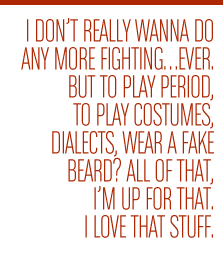 |
AQUINO: Person of Interest seemed to come out of nowhere. EMERSON: It did. It was another script that Bad Robot had that they were batting around, and I was anxious to work. I didn’t want to let too much time go by without working again. And I said to Bryan Burke and J.J., surely you have something else, and they said they have this really cool thing, this very noir kind of urban thing set in New York City that Jonah Nolan had written… AQUINO: Not just set, but actually shot… EMERSON: Actually shot. That’s when I perked up and said, “Oh it’s really gonna shoot there, not in Canada, not in, you know, Winnipeg or wherever?” So, I said, “Let me have a look at it, maybe there is something in it.” There was. I worried a little at first that it wasn’t different enough from the character I played on Lost. Now, I feel like it is so completely a thing unto itself. He’s still smart. He has some mysterious qualities, but he’s a good guy and he’s wounded. AQUINO: He is a fine dresser. EMERSON: Yeah! [laughs] And I tell you what. That’s one of the chief pleasures of the job for me. After having spent five years in muddy rags in the islands, now I am one of the spiffier dressers. And where the hell is the GQ cover for the people who are dressing Mr. Finch? Because he’s looking good. He’s a dandy, for God’s sake. AQUINO: So, it seems like Finch is getting more into some action. Would you prefer he stayed more behind the scenes or do you like him getting more involved? EMERSON: The actor in me is happy to get out of the library and go interact with other actors instead of disembodied voices on electronic machinery. So, I like it when Finch goes undercover, when he pretends to be the phone repairman or the undertaker or what have you. Those are good fun. And then, sometimes, I get into trouble. AQUINO: Oh, that great recent episode… Somebody on Twitter mentioned about the ecstasy trip. [View above] |
|||||||
 |
||||||||
| (The Way of the World) | ||||||||
|
EMERSON: It was good fun and a great stretch. Suddenly, Finch was no longer the straight-laced conservative character that he usually is. He’s always been so precise. AQUINO: My favorite scene. EMERSON: When he’s smelling the flowers… AQUINO: Yeah, you just went for it. Where do you see the story going? EMERSON: I suppose that their enemies, recent Finch’s enemies, different agencies of the federal government, black ops groups, secret international groups; anyone that fears or desires the machine is going to close in and it’s gonna get really hot. It’s going to get really hard for them to remain anonymous and to keep the machine safe. AQUINO: Now, there’s time off between shoots. Is there any film work coming about? EMERSON: No, I have… Well, I think I have a part in a Woody Allen movie, which shoots this summer, if I can get the time away from Person of Interest. It’s not a big part, but, you know, I think you take whatever you can get in Woody Allen film, just so you can say you did it. AQUINO: Is there anything that you watch that you are liking right now? EMERSON: I’m watching Southland, that police show. That actress Regina King is so great on it and Lucy Liu is a revelation on that show. I never thought… I mean, she was just not in the kind of movies that I went to, I guess, previously. Like Charlie’s Angels and stuff like that. I really don’t pay attention to those movies, but she is compelling and tough. I am very excited about Lucy Liu right now. And I’m watching The Killing, which has a great mood. It sometimes tries your patience and not all the story lines are electrifying. But, I’m liking Mireille Enos, she is playing the detective. She is so downbeat. She’s the most wonderfully depressed character ever. AQUINO: Anything like Game of Thrones or movies like that you’ve checked out yet? EMERSON: I am not cuckoo for Game of Thrones. I really like the books. And I… you know it has a great look. All the design work on it is stunning. I regret the compression of it. I regret what a “Cliff’s Notes” kind of affair it is, but I guess it has to be. How you are going to put…each of those books is a thousand pages? AQUINO: Yeah, it’s insane. Does that appeal to you? As an actor, do you want to be in some sort of sword and sorcery type of thing? Like Lord of the Rings style? EMERSON: I don’t really wanna do any more fighting…ever. So, if you say swords, or guns, or any of that, I’m gonna run screaming. But to play period, to play costumes, dialects, wear a fake beard? All of that, I’m up for that. I love that stuff. AQUINO: Any UK stuff you’re really excited about that you’re watching? EMERSON: I sure like that new Sherlock Holmes series. Come on. Benedict Cumberbatch? AQUINO: So Person of Interest is doing really well, but after it’s done, more TV? EMERSON: You would think that you would have worn out your welcome after two series. So then I think you withdraw a little bit and you look to break the mold a little bit. Although I have to say, my hat is off to Kelsey Grammer, who is killing it in Boss, that series. That is a terrific show… Boy it’s dark. The only complaint I could ever have about it is they may have erred a little bit on the side of gratuitous sex, but who’s going to complain about that? AQUINO: Excellent. So complete this sentence: Being an artist is…? EMERSON: Goodness. Being an artist is being curious all your life and not losing track of the child in you. AQUINO: Of what project are you most proud? EMERSON: Gross Indecency is one. Benjamin Linus. I’m proud of a lot of the roles I’ve played, to tell you the truth. AQUINO: What would be your dream project? EMERSON: My dream project, like all my good projects, is unknown to me, and that’s part of what makes them great, is they come out of the blue. Some text, some idea that I’ve never even thought of. But if I had to give a better answer, it would be interesting to play someone that was non-verbal, or un-verbal. Someone who could not speak or could not speak clearly or found no need to speak, that would be interesting. AQUINO: To whom do you look for inspiration? EMERSON: Good writers. Older actors who are living the life I wish one day to have. Ben Kingsley, or…fill in the blank. AQUINO: Is there anyone you’d like to work with and why? EMERSON: Oh, lots of actors. Helen Mirren, for God’s sake. Or Kate Blanchett, or yeah, Ben Kingsley, or Gary Oldman. Or great directors…Woody Allen. AQUINO: You’ve probably answered this already, but if you could live or work anywhere in the world, where would that be and why? Or are you doing it right now? EMERSON: I think my dream has come true. I mean I live and work in New York City. I would, there are places I’d like to travel to. I would like to appear on the London stage some day before I die. AQUINO: What was your first non-art job? EMERSON: I’ve had a bunch of retail jobs…The first one I had in New York was I worked for the Pottery Barn on 59th Street, and this was before it was a corporation. This was when it was still privately owned, back in the late 70’s. There were only two of them…the warehouse store on 23rd and Tenth Avenue, and then this new store they had just opened on 59th Street. I worked there a couple of years. AQUINO: Wow. What keeps you up at night? EMERSON: TV shows I feel I need to see. Books I feel I need to read. And having my wife on the West Coast. Which means that if I’m going to stay up late enough to talk to her, I have to wait until she’s done with her evening’s activities, so often we’re on the phone at one or two o’clock my time. AQUINO: What gets you up in the morning? EMERSON: Chumley. AQUINO: Your dog, Chumley. What type of dog is that again? EMERSON: He’s a mix of a poodle and a Maltese, we think. AQUINO: Adorable. EMERSON: He’s a cute guy. AQUINO: Describe your work in three words. EMERSON: Unexpected. Verbal. Surprise. AQUINO: Marvelous. And finally, if there was ever a movie of your life, who would write it, who would direct it, who would star in it? EMERSON: I don’t know who’d write it. Carrie could direct it. My friend Richard Robichaux in Texas, he could play me. Because he’s a super good actor and he and I look like we could come from the same people maybe. He’s a really skillful character actor. AQUINO: Excellent. Michael, thank you so much, sir. Always a pleasure to see you. EMERSON: Always good to talk to you. AQUINO: I know this was something different than we’ve ever done. It was fun. EMERSON: A pleasure. |
||||||||
|
|
||||||||
|
Visit Michael Emerson at: |
||||||||










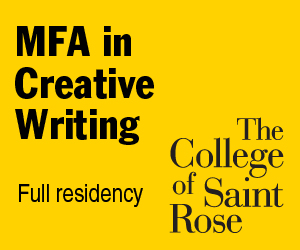
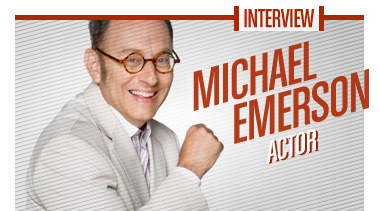
 Jimmy Aquino
Jimmy Aquino
Reader Comments